#Vegan Protein Sources
Text
vegan protein
complete proteins in the vegan diet
what is a complete protein?
Protein is comprised of 20 amino acids; 11 of these amino acids are produced by the human body. The other nine amino acids (called "essential amino acids") must be obtained from the foods we eat.
When a food contains all nine of these amino acids, it is called a "complete protein."
which foods are complete proteins?
Animal proteins are complete, including meat, poultry, fish, eggs and dairy. There are also a few plant-based sources of complete protein, including:
* Quinoa
* Buckwheat
* Hempseed
* Blue-green algae
* Soybeans
For other sources of complete proteins vegans must combine incomplete proteins. They do not have to be combined in the same meal but can be eaten separately across the day.
combining incomplete proteins to form a complete protein
If you're a vegetarian or vegan, or if you limit the amount of animal products you consume, you can combine incomplete, plant-based proteins to meet your body's needs.
combinations include:
* Nuts or seeds with whole grains (peanut butter on whole wheat toast)
* Whole grains with beans (beans and rice; hummus and pita bread; bean-based chili and crackers; refried beans and tortillas)
* Beans with nuts or seeds (salad with chickpeas and sunflower seeds)
With thanks to Piedmont Healthcare, Healthline and Wikipedia.
Image: Unsplash.
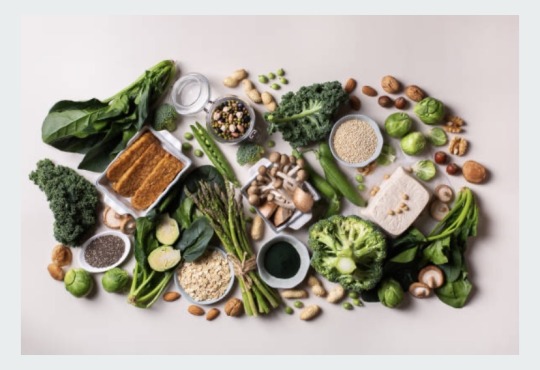
#vegan#veganism#animal rights#vegan protein#vegan protein sources#vegan incomplete proteins#vegan protein combinations
4 notes
·
View notes
Text
#Vegan#Vegan Protein Sources#Vegan Protein Supplement#Vegan Products#Civsa Products#health products#health & fitness#healthyfood#healthyhabits#health and wellness#healthylifestyle#veganfood#plantbased#veganism
0 notes
Text
youtube
Whether you're a dedicated vegan, a health-conscious individual, or simply looking to diversify your protein sources, this video is tailor-made for you.
In today's culinary exploration, we'll unveil a plethora of plant-based options that not only pack a protein punch but also tantalize your taste buds and simplify meal preparation. Say goodbye to the notion that plant-based eating is bland or restrictive – we're here to showcase the delicious possibilities awaiting you.
Join us as we delve into the versatile world of chickpeas, lentils, tofu, and seitan, among other nutrient-rich ingredients. These culinary gems aren't just for salads or side dishes – they're versatile enough to take center stage in a variety of mouthwatering recipes, from hearty stews to savory stir-fries.
But our journey doesn't stop at taste and convenience. We'll also explore the nutritional benefits of incorporating these high-protein alternatives into your diet. From supporting muscle growth and repair to promoting overall well-being, these plant-powered foods offer a myriad of health advantages that can't be ignored.
Moreover, we'll shed light on the environmental impact of embracing a plant-based diet. By reducing our reliance on animal products, we're not only making healthier choices for ourselves but also contributing to a more sustainable future for our planet. It's a win-win situation for both our bodies and the environment.
Whether you're a seasoned vegan, a curious foodie, or someone looking to make a positive change in your dietary habits, this video is your ultimate guide to exploring the world of high-protein plant-based alternatives. We invite you to unleash your culinary creativity and embark on a delicious adventure with us.
If you find this video informative and inspiring, be sure to show your support by giving it a thumbs up and sharing it with your friends and family. Let's spread the word about the benefits of embracing plant-based protein sources and empower others to make informed choices about their diet.
Get ready to revolutionize your meals, nourish your body, and contribute to a healthier planet – it's time to discover the endless possibilities of high-protein alternatives to meat. Thank you for joining us on this flavorful journey. Enjoy the video, and happy cooking!
#vegan#plant based protein#plant based diet#meatless#nutrition#proteinreplacements#healthy eating#cooking#cooking channel#vegan protein sources#protein diet#Youtube
0 notes
Text
Exploring the Myriad Health Benefits of a Vegan Lifestyle
In recent years, the vegan health benefits lifestyle has gained significant traction, propelled not only by ethical and environmental concerns but also by a growing recognition of its health benefits. Choosing a vegan diet means abstaining from all animal products, including meat, dairy, eggs, and even honey, and instead, focusing on plant-based foods. This shift in dietary habits can lead to a multitude of health advantages, ranging from reduced risk of chronic diseases to improved overall well-being. Let's delve deeper into the myriad health benefits that accompany a vegan lifestyle.
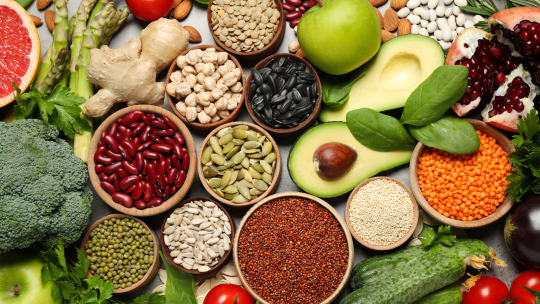
Enhanced Nutrient Intake
One of the primary misconceptions about veganism is that it leads to nutrient deficiencies. However, when appropriately planned, a vegan health benefits diet can provide all the essential nutrients the body needs for optimal functioning. Plant-based foods are rich sources of vitamins, minerals, antioxidants, and fiber. By incorporating a variety of fruits, vegetables, whole grains, legumes, nuts, and seeds into their diet, vegans can ensure they meet their nutritional requirements without the need for animal-derived products.
Lower Risk of Chronic Diseases
Numerous studies have shown that adopting a vegan lifestyle can significantly reduce the risk of developing chronic diseases such as heart disease, hypertension, type 2 diabetes, and certain types of cancer. The absence of cholesterol and the lower intake of saturated fats in a vegan diet contribute to improved cardiovascular health. Additionally, the high fiber content of plant-based foods helps regulate blood sugar levels and promotes digestive health, thereby reducing the risk of diabetes and gastrointestinal disorders.
Healthy Weight Management
Obesity has become a global epidemic, leading to various health complications. a vegan health benefits diet, characterized by its low-calorie density and high fiber content, can be an effective tool for weight management. Plant-based foods tend to be more filling than their animal-based counterparts, leading to reduced calorie intake and increased satiety. Moreover, studies have shown that vegans tend to have lower body mass indexes (BMIs) and lower rates of obesity compared to non-vegans.
Improved Digestive Health
Fiber is essential for maintaining a healthy digestive system, promoting regular bowel movements, and preventing constipation. Since plant-based foods are naturally rich in fiber, individuals following a vegan diet often experience improved digestive health. Furthermore, the consumption of fruits, vegetables, and whole grains provides a diverse array of beneficial nutrients that support gut microbiota, fostering a balanced and resilient microbial community in the intestines.
Enhanced Athletic Performance
Contrary to the misconception that vegans lack sufficient protein for muscle growth and athletic performance, many athletes have successfully adopted a vegan diet and achieved remarkable results. Plant-based sources of protein, such as legumes, tofu, tempeh, seitan, and quinoa, provide ample amino acids necessary for muscle repair and recovery. Additionally, the anti-inflammatory properties of plant-based foods can help reduce exercise-induced inflammation and promote faster recovery.
Improved Skin Health
The old adage "you are what you eat" holds true when it comes to skin health. A diet rich in fruits, vegetables, nuts, and seeds provides essential vitamins, minerals, and antioxidants that nourish the skin from within. The abundance of vitamins A, C, and E found in plant-based foods helps protect against oxidative damage, promote collagen production, and maintain youthful skin. Furthermore, the anti-inflammatory properties of a vegan diet can alleviate skin conditions such as acne, eczema, and psoriasis.
Environmental Sustainability
In addition to personal health benefits, adopting a vegan health benefits lifestyle can have a positive impact on the environment. Animal agriculture is a leading contributor to greenhouse gas emissions, deforestation, water pollution, and habitat destruction. By choosing plant-based foods over animal products, individuals can reduce their carbon footprint, conserve water resources, and help mitigate climate change. Embracing sustainable eating habits not only benefits current generations but also preserves the planet for future generations to come.
Conclusion
The health benefits of a vegan health benefits lifestyle extend far beyond personal well-being, encompassing environmental sustainability and ethical considerations. By embracing plant-based foods and eliminating animal products from their diets, individuals can experience enhanced nutrient intake, lower risk of chronic diseases, healthy weight management, improved digestive health, enhanced athletic performance, and radiant skin. Furthermore, the transition to a vegan lifestyle aligns with principles of compassion, sustainability, and global responsibility. As awareness continues to grow, more people are recognizing the profound impact of their dietary choices on their health, the planet, and all living beings.
Website: https://cruelty.farm/
#vegan health benefits#Positive Change Veganism#Cognitive Function Diet#Weight Management Vegan#Detoxifying Diet#Anti-Inflammatory Vegan#Vegan Gut Health#Vegan Athletes#Vegan Longevity#Chronic Disease Reversal#Vegan Protein Sources#Muscle Building Vegan#Vegan Iron Sources#Calcium in Vegan Diet
1 note
·
View note
Link
Bài viết này đưa ra danh sách 9 nhóm thực phẩm giàu đạm cho người ăn chay. Giúp người ăn chay tìm được những nguồn bổ sung đạm (protein) đa dạng, chất lượng nhằm bảo đảm cơ thể khoẻ mạnh.
#thực phẩm giàu đạm cho người ăn chay#ăn chay trường#đạm thực vật#protein#protein thực vật#vegan#vegan protein#vegan protein sources
1 note
·
View note
Text
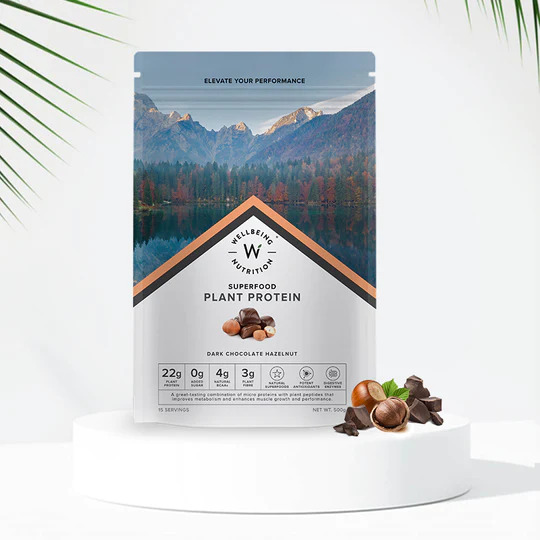
Dark Chocolate Protein Powder | Hazelnut Protein | Vegan Protein Sources - Wellbeing Nutrition
There are various protein sources and the dark chocolate protein with hazelnut from Wellbeing Nutrition is a vegan protein powder that helps in boosting metabolism and weight management.
0 notes
Text
pipin' hot take: veggie sandwiches are the best and most flavorful sandwiches ever created BUT only if theyre allowed to be "unhealthy" and not just a bunch of spinach on dry toast
if that sandwich isnt slathered in butter or cream cheese or mayo with pickles and cheese(s) its just inedible and sad
#the bread's at least gotta be panfried in some kinda grease#you may add a protein source but it shouldnt take center stage#you may use vegan alternatives to the cheeses and condiments BUT#they all still have to be fats of some kind
3 notes
·
View notes
Text
diagnosing aidan with just a little guy syndrome

#look how skinny he is#I’m literally taller than him#and I’m not that tall#boy needs to eat#I know he’s vegan but still#there are other sources of protein#that uniform is bulky#hides his frame#think that’s on purpose#kudos to costume team#lanky boi#noodly arms#aidan gallagher#aidanrgallagher#youtube
15 notes
·
View notes
Photo
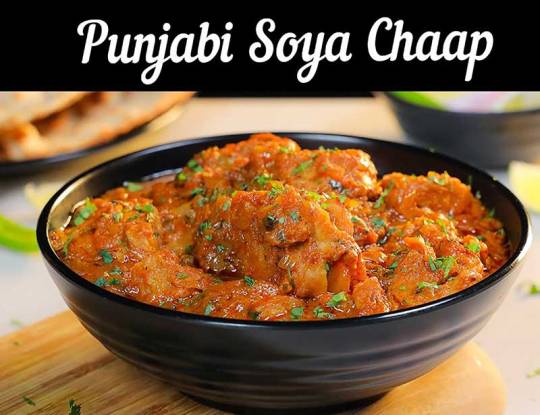
Delicious Veg Soya Chaap Treat For Your Loved One
If you enjoy soya chaap as I do, you should give this curry dish a go. Here you are going to read a recipe for finger-licking-good Punjabi-style masala soya chaap, which is North India's best vegetarian comfort dish.
#soybeans#vegan#deliciousfood#soya#vegan cooking#chaap#soya chaap#protein sources#vegsoyachaap#punjabi style masala soya chaap
8 notes
·
View notes
Text
Maybe it's because I'm from such a rural area but every time I see a post about someone caring for livestock for the first time and realizing how fulfilling it is I check the notes, and they're always full of vegans saying "you see how great these animals are and yet you eat them, you monster." And it just reminds me every time how disconnected from reality so called animal rights activists are. Like yes, someone can raise chickens, think they're wonderful, and still eat chicken and eggs. Like livestock are not pets, I don't know how to explain to you that you can care about the animals and still know they have a purpose and sometimes that purpose is to be consumed.
#its a totally different relationship theyre just not pets#and not every animal should be a pet and not every animal would survive without human care#i could also go on a rant about how Not Ethically Sourced most of your vegan protein substitutes are but ill refrain lol
6 notes
·
View notes
Text
top 75 sources of plant-powered protein
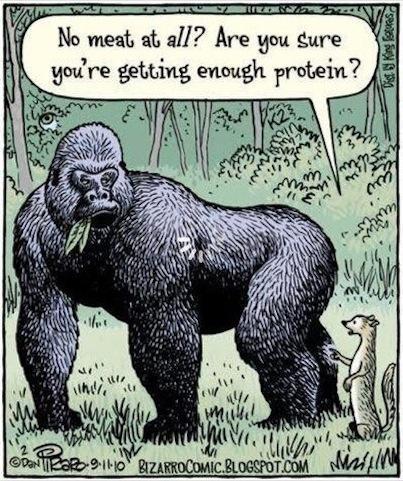
By Be Good Organics.
#vegan#veganism#go vegan#govegan#vegan protein#plant based protein#vegan protein sources#plant based protein sources#protein
1 note
·
View note
Text
Are You Vegan .How to get Protein- No problem, Solution Is Here

Hello everyone! today’s blog topic is very interesting Protein Vegan Diet .Are you considering adopting a vegan lifestyle but concerned about getting enough protein? You’re not alone! Protein is important nutrient that helps build and repair breakage tissues, and plays a crucial role in maintaining a healthy body. Many people believe that the only way to get enough protein is through animal-based sources, but that’s not the case. In fact, a well-planned vegan diet can provide all the protein your body needs. In this blog post, we’ll explore a variety of vegan protein sources, including legumes, nuts, seeds, grains, soy products, and vegetables. We’ll also discuss the importance of consuming essential amino acids and maintaining a balanced vegan diet. By the end of this post, you’ll have a better understanding of how to get the protein you need to support a healthy, plant-based lifestyle.
Brief Explanation of Veganism
Veganism is a lifestyle that seeks to exclude all forms of animal exploitation and cruelty, including in the food we eat, the products we use, and the entertainment we consume. Vegans follow a plant-based diet that excludes all animal products, such as meat, dairy, eggs, and honey, and instead relies on fruits, vegetables, grains, legumes, nuts, and seeds for nourishment. This way of life is driven by ethical, environmental, and health concerns, and aims to promote a more compassionate and sustainable world.
Read Full Article on
#nutrition#dietician#vegan protein#fitness#protein rich diet#protein rich food#protein supplement#protein smoothie#legumes#protein#veganism#protein sources#nuts and seeds#grain#soy protein ingredients market#soy protein#vegetables
2 notes
·
View notes
Text
In the pursuit of gains I consume so much fiber
Every night my tummy is a symphony of digestion
#vegan protein sources are maidenly fiber heavy#*maddeningly*#not for the faint of heart#personal hydrogen
2 notes
·
View notes
Text
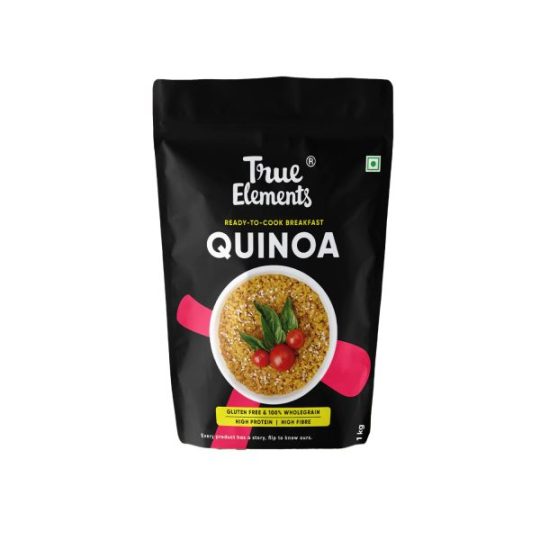
True Elements Quinoa 1kg
True Elements Quinoa provides all the essential amounts of nutrients that aid in improving skin, hair, and overall health and also boosts your immunity.
https://www.cureka.com/shop/nutrition/weight-loss-foods/quinoa/true-elements-quinoa-1kg/
#Superfood#Whole grain#Gluten-free#High protein#Nutrient-rich#Ancient grain#Healthy grains#Versatile ingredient#Vegan-friendly#Source of fiber#True Elements
0 notes
Text
What Is A Vegan Who Eats Eggs Called?
Introduction
In the evolving landscape of dietary preferences, a unique category has emerged: the vegan who eats eggs. This dietary choice, often seen as a contradiction to traditional veganism, blends plant-based living with the inclusion of eggs.
Understanding the motivations, ethical considerations, and nutritional aspects of this choice sheds light on a broader spectrum of veganism. This…

View On WordPress
#animal welfare#dietary choices#egg consumption#environmental impact of eggs#ethical egg sourcing#ethical veganism#nutritional benefits of eggs#ovo-vegetarian#plant-based diet#protein sources#sustainable egg production#vegan baking#vegan cooking#vegan lifestyle#Vegan Who Eats Eggs
0 notes
Text
The Ethical Vegan Diet: More Sustainable Future

Introduction:
The ethical vegan diet is gaining popularity for its focus on compassion and sustainability. Ethical vegans abstain from consuming animal products, aiming to eliminate harm directed towards animals while supporting a more environmentally-friendly food system. This article will delve into the principles of Ethical vegan eating, highlighting the ethical and environmental consequences of animal agriculture. Furthermore, we will explore the health benefits associated with adopting an ethical vegan diet and provide practical tips for implementing this lifestyle choice.
The Ethical Implications of Animal Agriculture:
Animal agriculture is a primary contributor to various ethical dilemmas surrounding animal rights. The factory farming industry subjects animals to overcrowded, unsanitary living conditions and inhumane treatment. Ethical vegans argue that all sentient beings have an inherent right to life, freedom, and protection from unnecessary suffering. By avoiding animal products, ethical vegans refuse to support an industry that promotes cruelty and exploitation.
Additionally, the widespread use of antibiotics and hormones in animal agriculture poses significant health risks. Routine use of antibiotics leads to the emergence of antibiotic-resistant bacteria, jeopardizing public health. Ethical vegans advocate for a food system that prioritizes the well-being of both humans and animals, highlighting the need for a shift towards plant-based alternatives.
Environmental Benefits of Ethical Veganism:
Beyond ethical concerns, adopting an ethical vegan diet also has significant environmental benefits. Animal agriculture is a major contributor to deforestation, greenhouse gas emissions, and water pollution. Livestock farming requires vast amounts of land, leading to the destruction of ecosystems and loss of biodiversity.
Furthermore, the process of rearing animals for food is extremely resource-intensive, requiring substantial water usage, feed production, and transportation. Animal agriculture is responsible for a significant portion of global greenhouse gas emissions, primarily due to methane released by livestock. By choosing to consume plant-based alternatives, ethical vegans reduce their carbon footprint and contribute to a more sustainable future.
The Health Aspect of Ethical Veganism:
Contrary to common misconceptions, an ethical vegan diet can meet all nutritional requirements. Well-planned vegan diets can be nutritionally adequate and provide all essential vitamins, minerals, and macronutrients needed for optimal health. Plant-based diets are rich in fiber, vitamins, and antioxidants, which can help in reducing the risk of chronic diseases such as heart disease, diabetes, and certain types of cancer.
However, to ensure adequate nutrient intake, ethical vegans need to pay attention to certain nutrients like vitamin B12, omega-3 fatty acids, iron, calcium, and zinc, which are commonly found in animal products. These can be obtained through vegan-friendly fortified foods, supplements, or careful selection of plant-based sources.
Practical Tips for Adopting an Ethical Vegan Lifestyle:
Transitioning to an ethical vegan diet can be a gradual process. Start by incorporating more plant-based meals into your routine and experimenting with various fruits, vegetables, grains, and legumes. Educate yourself about plant-based nutrition and seek guidance from registered dietitians or nutritionists to ensure a balanced diet.
Explore the wide variety of vegan alternatives available, such as tofu, tempeh, seitan, lentils, and nut-based milks. Experiment with different cooking techniques and flavor combinations to discover delicious plant-based meals.
In addition to diet, ethical veganism extends to the use of animal-derived products like clothing, cosmetics, and household items. Opt for cruelty-free and vegan alternatives whenever possible, avoiding products that have been tested on animals or contain animal-derived ingredients.
Conclusion:
Adopting an ethical vegan diet aligns individual food choices with moral principles, promoting compassion for animals and environmental sustainability. Through eliminating animal products, ethical vegans prioritize the well-being of all sentient beings and minimize their environmental impact. By understanding the ethical implications of animal agriculture and acknowledging the numerous health benefits associated with plant-based diets, individuals can make informed choices that promote a more compassionate and sustainable future. Please visit here Ethical vegan eating for more information.
#Factory farm animal cruelty#Vegan diet benefits#Unnecessary meat consumption#Dairy industry dangers#Meat industry hazards#Animal abuse in agriculture#Health benefits of veganism#Climate change and meat#Antibiotic resistance farming#Ethical vegan eating#Sustainability and veganism#Plant-based protein sources#Deforestation and meat industry#Debunking protein myth#Meat#dairy health risks#Greenhouse gas emissions farming#Dairy industry animal cruelty#Vegan diet sustainability#Environmental meat industry costs#Animal welfare and veganism
0 notes